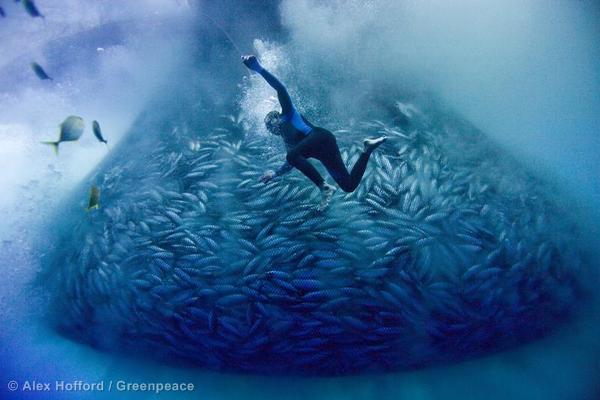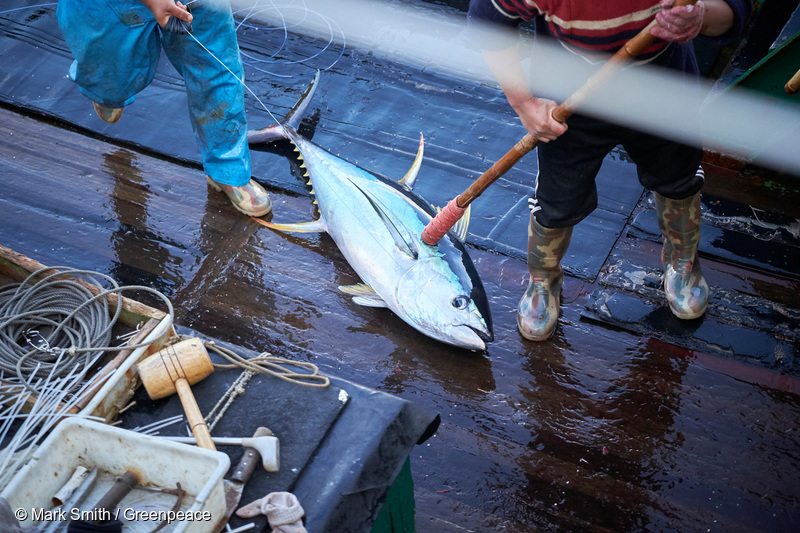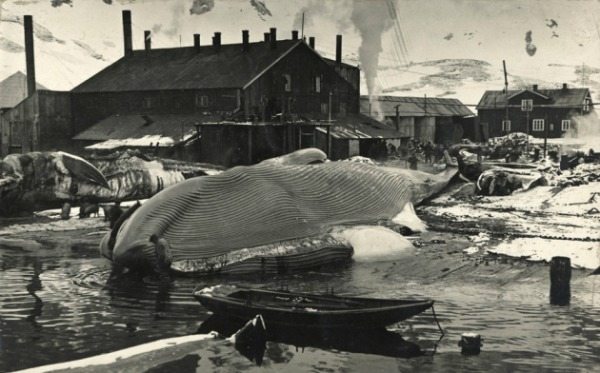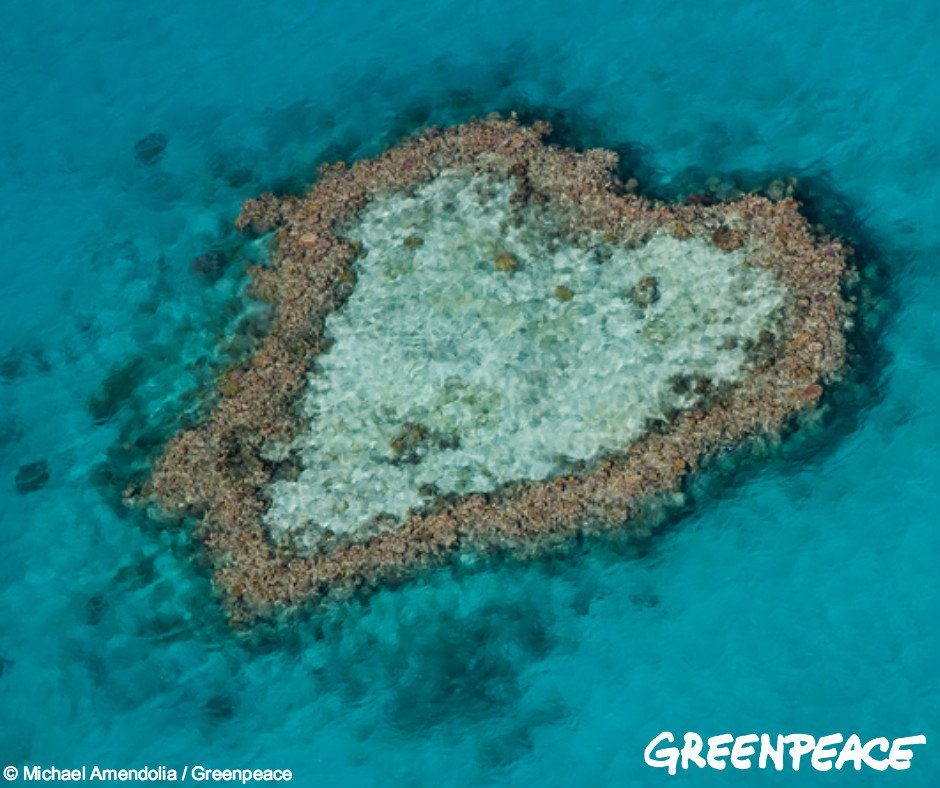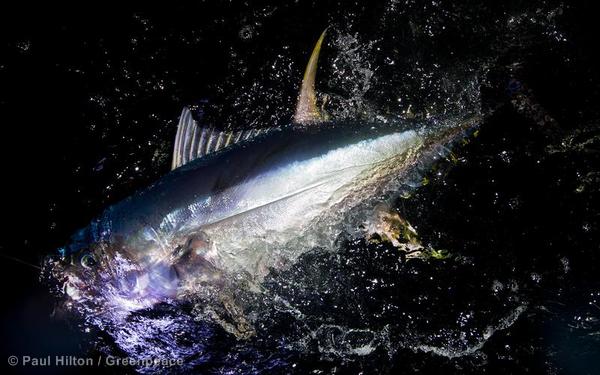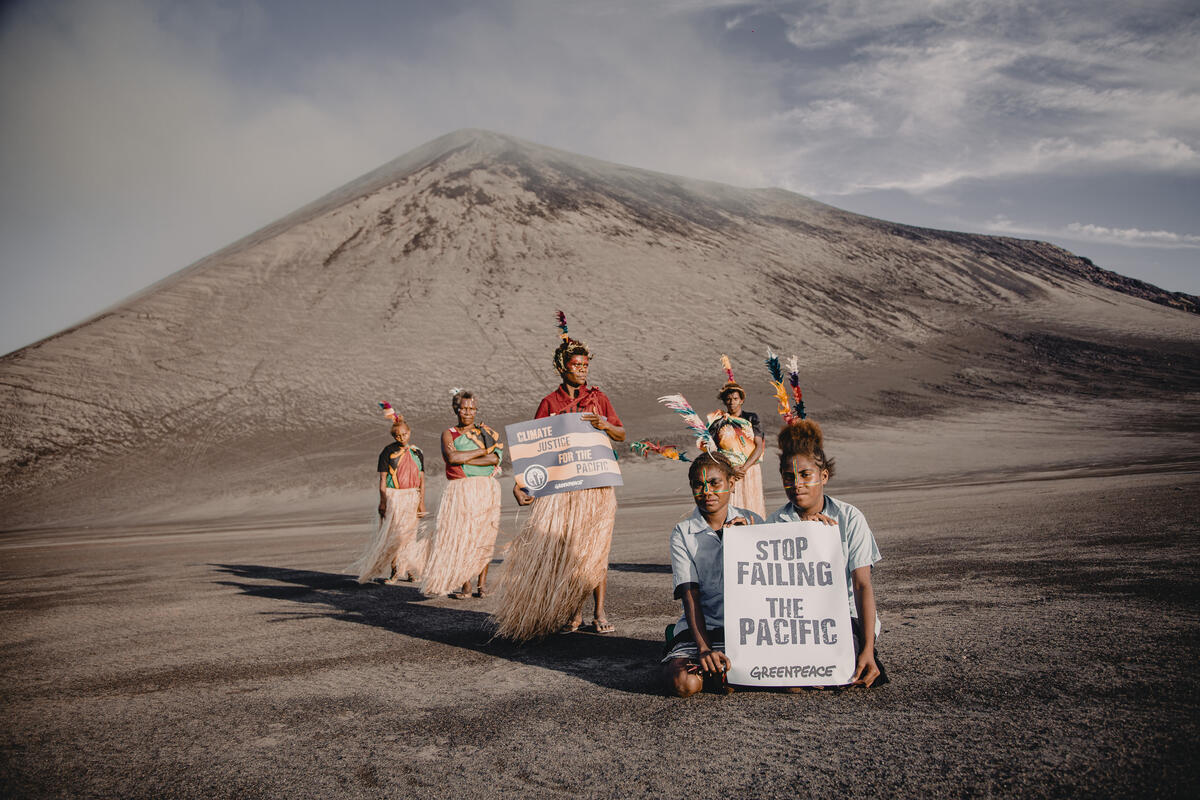All articles
-
Major win as Greenseas goes FAD-free following public outcry
Greenpeace today welcomes the commitment by Greenseas to end their use of destructive fishing practices in sourcing their tuna, following a public outcry.
-
John West announce FAD free tuna
Have you seen the news? John West, Australia’s biggest tuna brand with over 40% of the market, has announced their complete transition to FAD-free tuna sourced from the Pacific (FADs are fish aggregating devices - which act like fish magnets, drawing in tuna and other marine life making them easier to find and scoop up in…
-
#NotJustTuna Supplied by Thai Union Group to Trusted Brands and Companies
Is your company’s canned tuna supplied by Thai Union Group? If so, consider this a warning.
-
New tuna market creates unique opportunity for the Pacific
SYDNEY, 30 MARCH 2015 —- There could soon be a whole lot more demand for sustainably caught tuna from the Pacific. For the first time ever, Greenpeace has just released a canned tuna guide in the United States – the largest tuna consuming nation in the world. Opinion Editorial by Lagi Toribau in Islands Business …
-
Human Repercussion
Whales historically dominated the world's oceans, but they have suffered tremendously in the last hundred years. It is estimated, that, due to harvesting in the last century, nearly 3 million cetaceans have been wiped out by whaling fleets.
-
5 tips for eating seafood guilt-free!
Do you know what you’re putting in your mouth? Chances are, when it comes to seafood, you probably don’t.
-
Coles changes its tuna
Greenpeace’s Australian canned tuna campaign has netted another win for the oceans - supermarket giant Coles has pledged to ban destructive fish aggregation devices (FADs) which indiscriminately kills sharks, rays, baby tuna and endangered turtles.“If sharks celebrated Christmas, this is the present they’d be asking Santa for,” said Greenpeace oceans campaigner Nathaniel Pelle.
-
Once upon a time we went fishing
Once upon a time in the Bay of Plenty in New Zealand there was a great tradition. Hopeful anglers would gather to face off in the annual Whakatane Tuna Tournament. I say ‘once upon a time’ because the Whakatane Tuna Tournament no longer exists.
-
Protecting forests, traditional welcomes and leaving PNG
My name is Jamie, I work as the Online Manager in the Sydney office. I've just arrived in Port Moresby to join the MY Esperanza on the second leg of the Defending the Pacific ship tour.
-
The future of our oceans deserves a fair debate in Taiwan
Today, Greenpeace activists went to the Taiwan Fisheries Agency’s headquarters to demand they address the tuna overfishing crisis and be more transparent about the Agency’s budget and policy-making.


